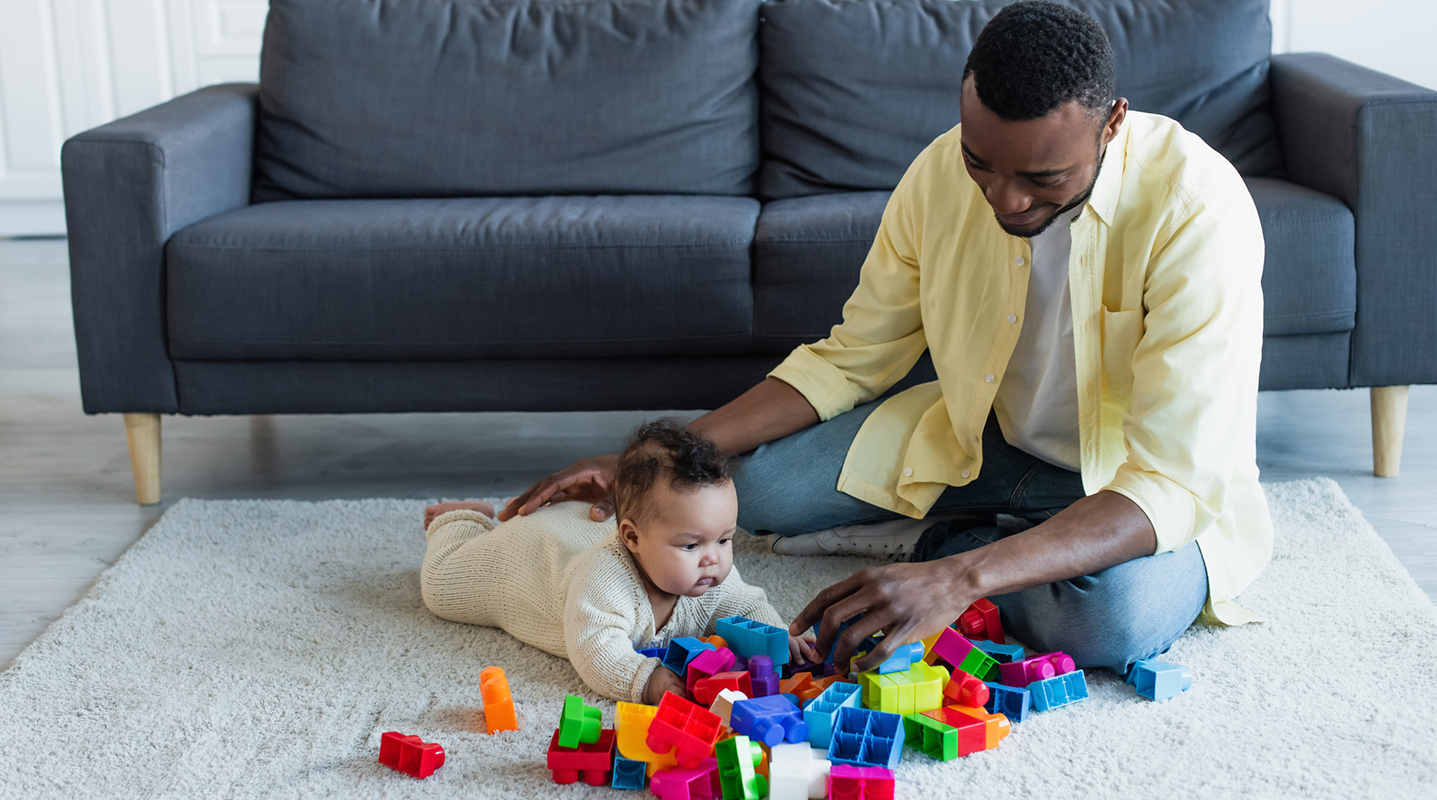Dont Let Developmental Milestones Pass You By
June 13, 2023

The first year of a baby’s life is full of questions like, “How can I get my child into a routine?” “Do I seriously need to change another diaper?” and, of course, “Where did I put that pacifier?”
But perhaps one of the most important questions is this: “Is my baby meeting developmental milestones?”
Babies reach developmental milestones as they play, learn, speak, act and move. The first year of life is chock-full of new skills, from a baby’s first smile to their first steps. It is the most critical period of human development because it creates a foundation for everything else. During that year, babies develop “master skills” that help them progress — from rolling to crawling to walking.
Track Your Baby’s Progress
Your child’s pediatrician is a valuable resource to help you make sure your baby is on track. During well-visit appointments, the doctor (or a nurse) will monitor your child’s development by asking you questions and talking or playing with your child.
The internet has many resources to help you follow your baby’s progress — one example is the free “Milestone Tracker” app for iOS and Android devices. Developed by the Centers for Disease Control and Prevention (CDC), the app helps you track your baby’s milestones from age 2 months to 5 years. The app includes videos, illustrations, tips and activities to do with your child to encourage their development. It also lets you know when there might be a developmental concern. It’s available in English and Spanish.
The CDC offers extensive information about developmental milestones, breaking them down by age. They even provide the information in 11 languages (including Spanish, Brazilian Portuguese and Haitian Creole). And they update it regularly based on new research discoveries about baby development.
Can Parents Help Their Child Develop?
"Babies develop naturally, but parents play an important role," says Valentina Bolanos, PT, DPT, a physical therapist at Memorial Healthcare System’s Joe DiMaggio Children’s Hospital.
“Parents can create an ideal environment for infant development by encouraging play and talking to their child,” Bolanos says. “The most important thing is to enjoy the time you spend with your baby. There is no wrong way to do that.”
Bolanos encourages parents to learn about activities that promote their baby’s development.
Sensory Skills
Sensory activities engage a baby’s sight, sound, taste, smell and touch. They can include almost anything, from pushing your baby in a stroller or splashing them gently during bath time to going to the zoo or listening to music. Bolanos says one of the best ways to stimulate a baby’s senses is through plenty of “tummy time.” Spending time on their tummies on the floor is an opportunity for babies to play safely with toys, practice motor skills and observe the world around them.
Fine Motor Skills
Babies need to play with their hands and practice picking things up with their fingers. That’s easy during playtime, mealtime — any time!
Speech and Language Skills
Talking and listening to your child is one of the best ways to help them develop language skills. Easy ways to engage with words include describing what you see as you walk through a park; singing your baby to sleep; and reading books aloud to your baby.
Cognitive, Social/Emotional, and Problem-Solving Skills
Don’t make everything easy for your baby. For example, put a toy just out of reach. Let them turn the pages of a book as you read. Encourage them to pick up something they’ve dropped. Little challenges like these help them think and figure out how to interact with the world.
What If I Have Concerns?
Knowing your baby well and tracking their development helps you recognize potential problems. Bolanos encourages parents to look for concerns such as:
- Excessive fussiness
- Lack of interest in play
- Missing more than a few milestones in a short period of time
- Loss of skills after achieving them
- Visual cues that something is “off.” For example, if a baby leans to one side while sitting, is too stiff or too “loose,” it could indicate a problem with muscle tone.
If you are worried, let the pediatrician know at your baby’s next appointment, or call the office if you don’t feel you should wait, Bolanos says. The doctor may recommend an evaluation for your child by a developmental specialist (a physician, physical therapist, occupational therapist or speech-language pathologist).
“Early treatment is critical,” Bolanos explains. “Research shows that therapy for developmental issues can be the most effective during the first year of life.”
Additional Resources
Another great resource is Early Steps, a state-funded organization that provides free in-home screenings and treatment for infants and toddlers with developmental delays, disabilities and at-risk conditions. To learn more and see if your child is eligible, visit the Early Steps website.
Memorial Healthcare System provides additional resources for parents and their developing babies. Check out the Baby and Me Parenting Series — live, online webinars covering topics such as postpartum depression and breastfeeding, poison safety, infant sleep, transitioning to solid foods and how to use a carrier.
